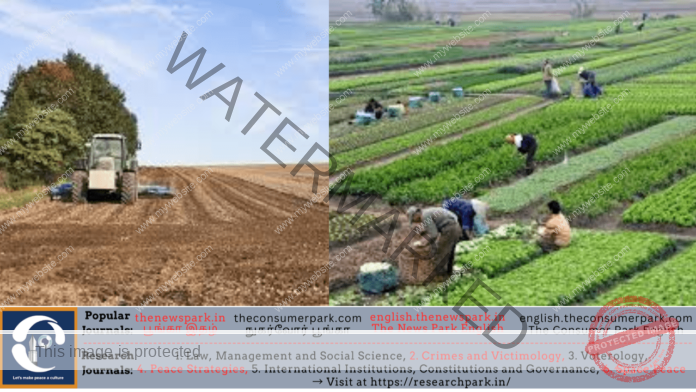In the 1960s, there was a huge shortage of food production in India. Due to this, the central government came up with various schemes to help farmers increase agricultural production. This leads to a situation where the products produced cannot be sold even at the cost of production. The government also studied the opinion raised by the farmers that this has made it impossible to move agriculture forward. Following this, the central government also announced a scheme called Minimum Support Prices (MSP) for agricultural produce on the basis of increasing agricultural production. This is different from the procurement price and the output price. The central government fixes the Fair and Remunerative Price (FRP) for sugarcane every year.
Due to the government’s policy decision to provide a minimum support price for agricultural produce, the Agricultural Price Commission (APC) was set up in 1965. This body was reorganized as the Commission for Agricultural Costs and Prices (CACP) in 1985. It is a joint effort of central and state government agencies including the Food Corporation of India (FCI) and the National Federation of Agricultural Cooperative Marketing Associations (NFAMA) to provide minimum support prices for agricultural produce.
The CACP examines various factors to calculate the minimum support price. However, the purpose of the policy documents for providing minimum support prices is not always clear. However, not all the recommendations made by the CACP, which are scientifically examined and approved by the government, are accepted by the government. Sometimes, there is a significant change in the prices approved by the government.
Awareness among farmers about the minimum support price is not very high. According to the 2013 Ministry of Statistics data, only 23% of farmers in rural farming households in India are aware of the minimum support price for their crops. At present, only 23 crops, including the fair and remunerative price for sugarcane, are covered under the MSP system. No one can deny that introducing a minimum support price scheme for all agricultural products will provide farmers with a stable income and will continue to protect agriculture and promote food production.
According to a United Nations statistic, about 25,000 people die of hunger every day in the world without food. The prices of essential food commodities have increased significantly since the Corona pandemic. At the same time, it can be seen from the average income of the country’s individuals that the income of the people has not increased in line with the increase in prices. It is the need of the hour to control the increase in prices of essential food items to address the essential food problems of the poor and middle class.
It is not fair to put forward the demand for minimum support prices for farmers’ products and the demand for controlling the increase in prices for the same items, and it is not ideologically appropriate to assume that if the support price of agricultural products is increased, the prices of agricultural products will definitely increase in the market.
The local businessman who buys the produce of the farmers sells it to wholesalers by adding a profit to them. The wholesalers fix a profit for themselves and sell the products to the wholesalers who sell the products in the open market. They add a profit for themselves and sell the same product to the retail sellers. The retailers who sell the same products to the public in the market have to add a profit for themselves. Since the agricultural products produced in this way reach the market through many intermediaries, there is a huge difference between the price paid to the farmer and the price of the same product in the market.
In every district, district and state, agricultural producers – food consumers cooperative societies should be formed and produce products from farmers only through these societies and food grains should be sold only through such cooperative societies’ direct sales centers in all the villages, so that the middlemen will be completely eliminated. Through this, the farmer will get maximum benefit and consumers will get food products at lower cost.


